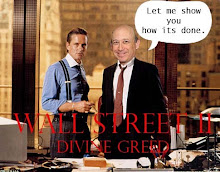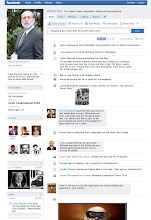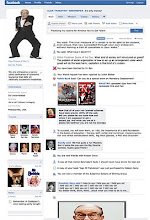Friday, February 5, 2010
A BETTER WAY TO BREAK UP THE BANKS
HARVARD BUSINESS REVIEW--The history of financial reform shows that simple is best. Glass-Steagall was crude but it worked—it was easy to understand and enforce. Whatever measures are introduced this time round need to be equally plain. President Obama's plan of trying to draw a line down the middle of investment banks' trading activities by splitting off proprietary trading fails this test. Why? Because it is very difficult to decide what counts as facilitation for customers and what counts as outright position taking.
A simpler and more effective approach would be to prohibit banks that traded for customers or for themselves from giving advice to clients. This would give rise two types of firm. Specialist trading firms would make a living by making markets for customers and would be free to carry out proprietary trading for their own account. They would not be allowed to advise investors or to be owned by firms that advise investors. Advisory firms, on the other hand, would not be able to trade for themselves but would have to deal for clients on an agency basis through the specialist trading firms or electronic order books. For complex deals they would structure trades and put together quotes for clients. These rules would apply to all asset classes and would extend to corporate finance work so that trading banks would not be able to advise on mergers, new issues and financial restructuring.
This system would be transparent and easy to police. The risk of one component contaminating another would be minimal. The message to banks from regulators would be straightforward: if you trade in markets, you cannot speak to clients. The integrated investment banks would have to decide which way they wanted to go, trading or advisory. Smaller, less connected institutions would result. The cost of capital might rise and markets might be less liquid but given the role played by the global trading frenzy in the credit crunch who is to say that this would be a bad thing?
As well as reducing the scale and systemic threat of the investment banks, splitting them in this way would also put paid to conflict of interest, still one of the nastiest features of modern finance. In few if any other businesses are firms allowed to work for both sides of a transaction and to take a principal turn out of the middle, yet in investment banking—provided basic compliance is followed—this approach is legal and unchallenged. This loads the dice in favour of the banks, helping to explain their high returns in normal market conditions. It may also shed some light on the uncomfortable truth that many investment banking products—mergers and acquisitions, new issues, complex derivatives—disappoint those who buy them.
Philip Augar
WB7 A Useful Definition of Modern Investment Banking: "Applying cutting edge technologies to mine client conflicts for profit."
Subscribe to:
Post Comments (Atom)




































.jpg)












No comments:
Post a Comment